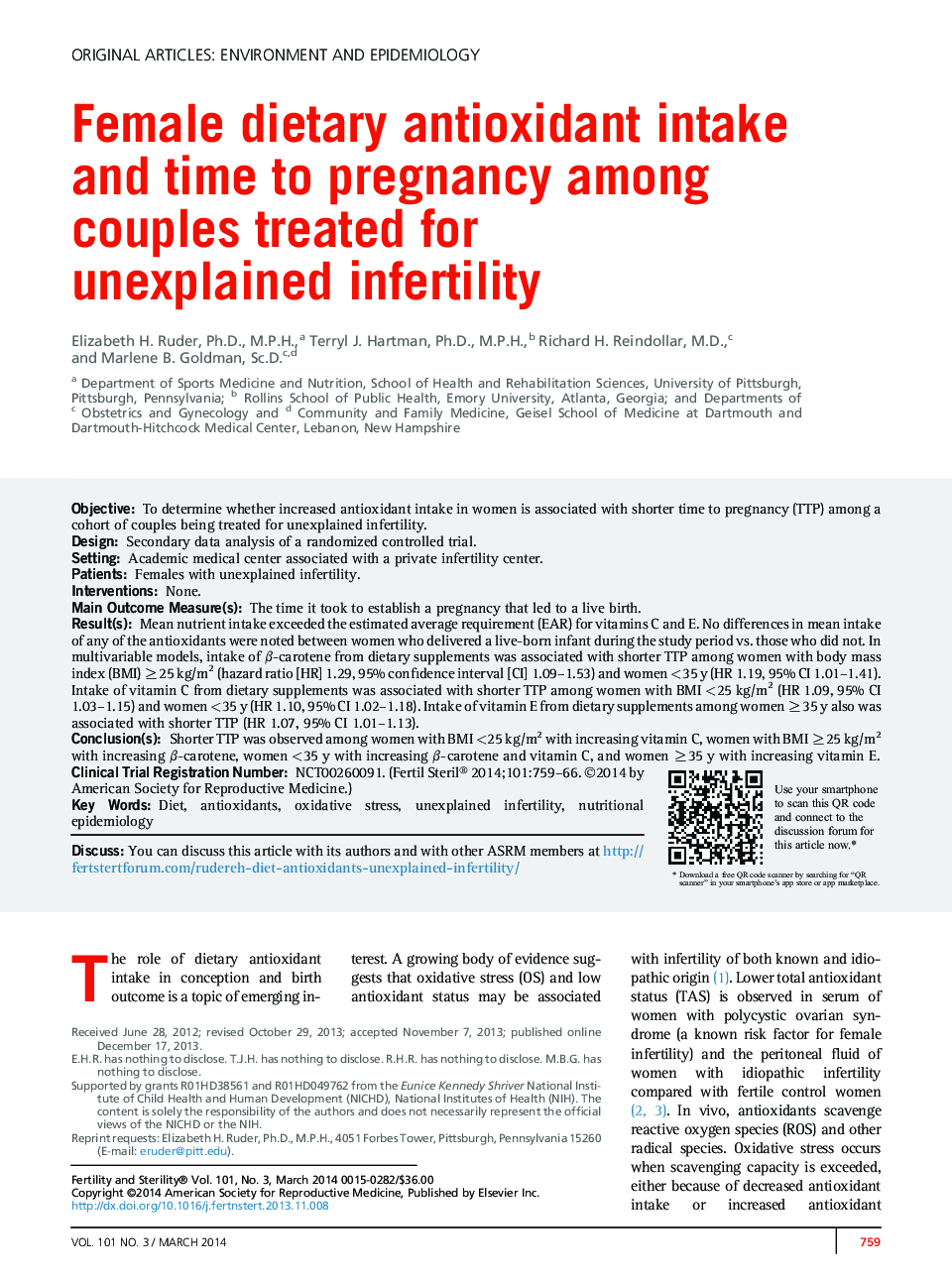| Article ID | Journal | Published Year | Pages | File Type |
|---|---|---|---|---|
| 6180316 | Fertility and Sterility | 2014 | 8 Pages |
ObjectiveTo determine whether increased antioxidant intake in women is associated with shorter time to pregnancy (TTP) among a cohort of couples being treated for unexplained infertility.DesignSecondary data analysis of a randomized controlled trial.SettingAcademic medical center associated with a private infertility center.PatientsFemales with unexplained infertility.InterventionsNone.Main Outcome Measure(s)The time it took to establish a pregnancy that led to a live birth.Result(s)Mean nutrient intake exceeded the estimated average requirement (EAR) for vitamins C and E. No differences in mean intake of any of the antioxidants were noted between women who delivered a live-born infant during the study period vs. those who did not. In multivariable models, intake of β-carotene from dietary supplements was associated with shorter TTP among women with body mass index (BMI) â¥25 kg/m2 (hazard ratio [HR] 1.29, 95% confidence interval [CI] 1.09-1.53) and women <35 y (HR 1.19, 95% CI 1.01-1.41). Intake of vitamin C from dietary supplements was associated with shorter TTP among women with BMI <25 kg/m2 (HR 1.09, 95% CI 1.03-1.15) and women <35 y (HR 1.10, 95% CI 1.02-1.18). Intake of vitamin E from dietary supplements among women â¥35 y also was associated with shorter TTP (HR 1.07, 95% CI 1.01-1.13).Conclusion(s)Shorter TTP was observed among women with BMI <25 kg/m2 with increasing vitamin C, women with BMI â¥25 kg/m2 with increasing β-carotene, women <35 y with increasing β-carotene and vitamin C, and women â¥35 y with increasing vitamin E.Clinical Trial Registration NumberNCT00260091.
